In their new book Organizations for People: Caring Cultures, Basic Needs, and Better Lives (Stanford University Press, 2020), William F. Baker, Ph.D., an Emmy Award winner; president emeritus of WNET-Thirteen, New York’s public television station; and journalist in residence at Fordham’s Graduate School of Education, and industrial psychologist Michael O’Malley explored how to create respectful workplace cultures and meet the basic needs of employees.
Their findings are backed by more than 450 citations and months of interviews. They spoke with executives, human resource workers, and other employees from companies that have been cited as “best places to work.” Their questions focused on how the companies put their employees’ interests and needs first—an increasingly important task in today’s corporate world, said Baker.
“[These are] times in which more and more people are less and less satisfied with their work. There are statistics like 36% of employees say they have dysfunctional managers; 75% of workers say their boss is the most stressful part of work,” Baker said in a phone interview. (He offers more detail in a Stanford University Press blog post.) “And we wanted to see, one, if that’s the case, and number two, if there are examples where that’s not the case and how they are doing.”
Baker and O’Malley transcribed their findings in their new book. In less than 200 pages, they focused on how managers can create a healthier and happier working environment over the long haul.
“One method that I’m a big believer in is the German word ‘vergonnen,’” Baker said. “It means celebrating other people. When something good happens to somebody in your company, celebrate it. Celebrate them.”
Another strategy is paying attention to people’s basic needs—for example, their lives outside of work, he added.
“There may have been all kinds of things that happened to you over the weekend. You may have had a sick mother; you may have had an accident. You may have performed in a play and been a big star. And if somebody doesn’t pay attention to the fact that you are unique and special and have your own needs, then you won’t thrive at work. And if you can’t praise and accept people, and if they can’t feel empowered, then they won’t deliver to their maximum capacity—it’s that simple,” Baker said.
The people who will find the book most useful are corporate managers from companies, both big and small, and students training to become managers, said Baker. But the book is valuable for “leaders at all levels,” said Donna M. Rapaccioli, dean of the Gabelli School of Business.
“Leaders are looking for simple, impactful practices that they can implement—and this book is filled with them. By demanding better leadership, this timely work lays out human-centered processes and practices that leaders at all levels can use to meet business goals,” Rapaccioli wrote on the book’s back cover.
Baker and O’Malley aren’t the only ones embracing the idea of a people-centric workplace. A recent statement from the chair of Business Roundtable, a group that represents “the most powerful CEOs in America and their thinking,” according to The Chicago Tribune, asked corporations to put people before profits.
“Respect is really the way to manage people,” Baker said. “And if America is going to succeed, it’s going to have to start thinking about management in that way.”
]]>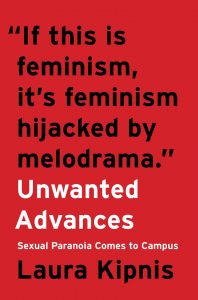
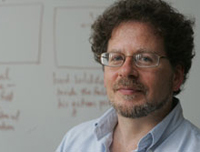 Leonard Cassuto, Ph.D., professor of English and American Studies and author of The Graduate School Mess: What Caused It and How We Can Fix It (Harvard, 2015)
Leonard Cassuto, Ph.D., professor of English and American Studies and author of The Graduate School Mess: What Caused It and How We Can Fix It (Harvard, 2015)
“At the top of my summer book stack is Laura Kipnis’ new book, Unwanted Advances: Sexual Paranoia Comes to Campus (Harper, 2017). Kipnis’ investigation of the Title IX excesses on many American campuses has a personal side: When she wrote an article about a Title IX investigation at her own university, she found herself the subject of an investigation, too–and that inquiry helped to inspire this book. This is a book about current events, indeed.”
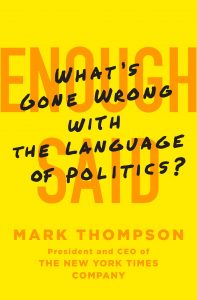
 Bill Baker, Ph.D., director of the Bernard L. Schwartz Center for Media, Public Policy, and Education
Bill Baker, Ph.D., director of the Bernard L. Schwartz Center for Media, Public Policy, and Education
“My summer reading gets a double dip as I read sitting in the lantern room of a lighthouse we care for in Nova Scotia (Henry Island). This year I’ll be reading Enough Said (St. Martin’s Press, 2016) by Mark Thompson, the New York Times Company president and former BBC Director General. He has written a powerful book about what’s gone wrong with the language of politics. I’ll also be reading The Naked Now (The Crossroad Publishing Company, 2009) by Richard Rohr, a Franciscan friar who writes some of the most powerful meditative philosophy I’ve ever read. A lighthouse is a good place to read about God and the spiritual light.”
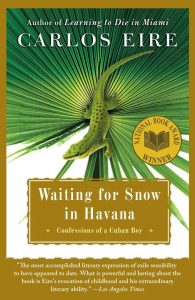
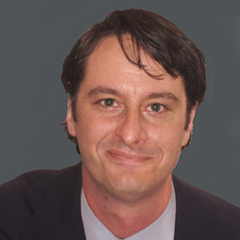 James McCartin, Ph.D., associate professor of theology
James McCartin, Ph.D., associate professor of theology
“As a father of three young kids, I’ve grown to appreciate books that offer a window into how children see the world–maybe in an effort to figure out my own kids. Therefore, my summer reading season begins with two childhood memoirs. The first is Maurice O’Sullivan’s Twenty Years a-Growing (J.S. Sanders Books, 1998), set on a remote island in the southwest of Ireland a century ago, and the second will be Carlos Eire’s Waiting for Snow in Havana (Free Press, 2004) which narrates his story as an immigrant growing up between Cuba and the United States in the 1960s. Then, I’ll pick up a book I started last summer but put down as the school year began, Fyodor Dostoyevsky’s The Brothers Karamazov. As to Dostoyevsky, I’ve long been embarrassed to say that I’ve never read him, so now’s my chance to put the embarrassment behind me.”

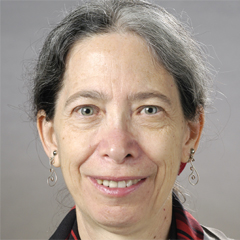 Heather Dubrow, Ph.D., John D. Boyd, S.J. Chair in Poetic Imagination and the director of Poets Out Loud
Heather Dubrow, Ph.D., John D. Boyd, S.J. Chair in Poetic Imagination and the director of Poets Out Loud
“A growing pile of books in my field has been staring at me balefully from my night table for some time, and before they topple over I hope particularly to read more sections of two of them that I have dipped into only briefly before: Brian Cummings’ The Literary Culture of the Reformation (Oxford, 2002) and Reuben Brower’s Fields of Light (Greenwood Press, 1980). I am in the middle of an extraordinary magical realist novel, George Saunders’ Lincoln in the Bardo (Random House, 2017), as well as some volumes of poetry, such as Alicia Ostriker’s latest, Waiting for the Light (University of Pittsburgh Press, 2017).

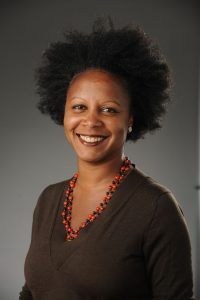 Christina M. Greer, Ph.D., associate professor and associate chair of the political science department
Christina M. Greer, Ph.D., associate professor and associate chair of the political science department
“Since I am preparing to write a lot this summer, I tend to read fiction to help me ‘hear’ language better. Right now I am finishing a series of short stories by Mia Alvar, In the Country (Oneworld Publications, 2016) about Filipino migrations and relationships. I plan on finishing Luther Campbell’s’ memoir The Book of Luke: My Fight for Truth, Justice, and Liberty City (HarperCollins, 2015) about Liberty City, Miami, Florida. He’s a controversial figure, but his analysis of residential racism and segregation in Miami is fascinating. I am also going to read Underground Airlines (Random House, 2016) by Ben Winters, an alternative history of life in the U.S. had the Civil War never happened. [And] since I am teaching Congress in the fall, I’ll likely begin rereading Robert Caro’s Master of the Senate (Vintage Books, 2003), about my favorite president and brilliant congressman, LBJ.”

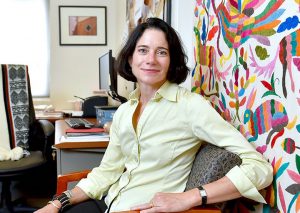 Barbara Mundy, Ph.D., professor of art history
Barbara Mundy, Ph.D., professor of art history
“My summer reading list is heavy with books on cities, a topic I’ve written a lot about. At the top is Jennifer Egan’s Manhattan Beach (Simon & Schuster, 2017), a novel set in New York in the 1940s, and I’m getting ready to devour it as soon as I get through my end-of-year reports. David Lida is a Mexico-City-based writer; I can dip into his book of short essays, Las llaves de la ciudad (Sexto Piso, 2008) [Keys to the City], whenever I need to be transported to one of my favorite cities in the world. And then there’s Small Spaces, Beautiful Kitchens (Rockport Publishers, 2003) by Tara McLellan; I’m downsizing to an apartment and trying to figure out how to cram all my cooking gear (fermentation is much on my mind) into a smaller space.”

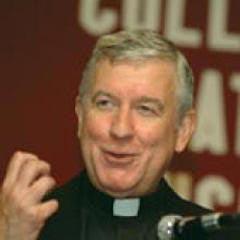 Robert Grimes, S.J., dean of Fordham College at Lincoln Center
Robert Grimes, S.J., dean of Fordham College at Lincoln Center
“The number one book on my summer reading list is Dorothy Day: The World Will Be Saved By Beauty (Scriber, 2017), by Dorothy Day’s granddaughter Kate Hennessy. When I was a high school student at Xavier, we sometimes went to the Catholic Worker House on the Lower East Side, and I had the honor to meet Dorothy Day a couple of times. When Kate Hennessy spoke at the Fordham Rose Hill campus this year, I was unable to attend, so I’ll make up for missing that event with reading her book.”
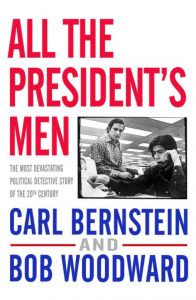
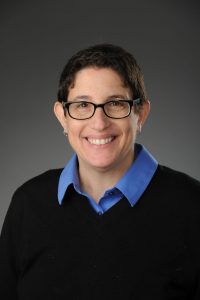 Laura Wernick, Ph.D., professor of social work in the Graduate School of Social Service
Laura Wernick, Ph.D., professor of social work in the Graduate School of Social Service
“Given our political climate and the rise of the alt-right, coupled with ongoing investigations and hearings surrounding Russia and Donald Trump’s campaign, my reading list is focused upon understanding this context and history. Having just read Dark Money and Trump Revealed (Doubleday, 2016), my summer reading list has included All the President’s Men (Pocket Books, 2005) and The Final Days (Simon & Schuster, 2005), along with Masha Gessen’s The Man Without a Face (Riverhead Books, 2012), a critical read to understand the rise and power of Putin. I plan on following this with a series of edited volumes about hope and moving forward from the resistance movement.”
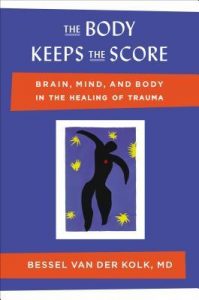
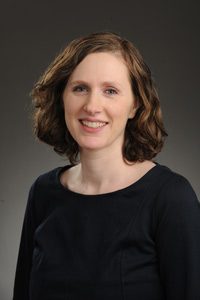 Mary Beth Werdel, Ph.D., associate professor of pastoral counseling and director of the Pastoral Care and Counseling program at the Graduate School of Religion and Religious Education
Mary Beth Werdel, Ph.D., associate professor of pastoral counseling and director of the Pastoral Care and Counseling program at the Graduate School of Religion and Religious Education
“I will be reading The Body Keeps the Score: Brain, Mind, and Body in the Healing of Trauma (CreateSpace Independent Publishing Platform, 2015) by Bessel van der Kolk. The book examines holistic approaches to trauma work. I’m interested in the way that spirituality relates to stress related growth, which is the examination of positive psychological consequences of moving through stress. I have a book contract related to the topic. This book touches on related themes of trauma and whole body healing.”
–Veronika Kero
]]>

William Baker, Ph.D., Fordham’s Claudio Acquaviva Chair and director of the Bernard L. Schwartz Center for Media, Public Policy at the Graduate School of Education, wrote an Op-Ed in which he ponders the future of television news in the United States. In it, he says Germany has a successful model worthy of emulating.
Writing for Current, a nonprofit news service for and about public media in the United States, Baker says:
“Germany has a nightly public television program called Tagesschau (basically, ‘Daily Show’), arguably the highest-rated news program in the western world. Ten million people tune in each evening, in a country with a quarter of the U.S. population. The broadcast has a 34 percent share of the audience, nearly bettering the combined audience share of all the American networks, PBS and cable newscasts combined. The Germans have a heterogeneous audience that sits around the common campfire to listen to the day’s stories.”
Baker then explains how the show’s open and straightforward style, which does not include any tabloid or soft news, nets them success:
“To draw together an immense, heterogeneous, multigenerational audience requires trustworthy sources and reporters of the highest integrity. Tagesschau has both in abundance, but its formula does not depend on a Walter Cronkite figure; the program uses newsreaders who follow a script provided by a deep team of top editors and researchers. Their objective is to be the most reliable source of news, not just the fastest. Every story is checked two to three times by different editors before going live.”
Can the United States restore trust in the media? Read more of his thoughts in his Op-Ed via Current.
]]>Even so, the long-running Sesame Street remains the gold standard for educational television, said Rosemarie Truglio, Ph.D., senior vice president of curriculum and content at Sesame Workshop, because its programming is backed by copious amounts of research.
Truglio spoke at the Lincoln Center campus on Jan. 24 in a wide-ranging conversation with William Baker, Ph.D., the Claudio Acquaviva Chair at the Graduate School of Education (GSE). She said that, behind the scenes, the show—which is aired in 150 countries including Afghanistan—is constantly changing.
Sesame Street is unique among educational shows because of its devotion to a whole child curriculum that addresses all aspects of child development, rather than a single topic like science or literacy, she said. To accomplish those ends, each season is followed by rigorous research that is then shared with the public and incorporated into future programming. In the last 48 years, approximately a thousand studies have been conducted and used to continuously update the show from season-to-season—often to the consternation of parents who were once viewers themselves.
“Parents call and say and ‘Why are you changing my Sesame Street?’ I’m sorry, but that was your Sesame Street. What’s on the air right now is your child’s Sesame Street. So what I want to know is, does your child like watching it?” she said.
Because “appointment viewing” has vanished and more children watch shows on devices like iPads, Truglio said the Workshop’s biggest challenge is helping parents to discern which shows are truly educational, and ideally steer their children to that show.
The show addressed a literacy concern in early childhood education known as the “30 million word gap,” a phenomenon where children from low-income families have been found to enter kindergarten with a vastly smaller vocabulary than middle-class children.
“With vocabulary, you need repetition to really own that word. You also need to see repetition across different contexts. That was nice for us, because we could talk about the vocabulary word at the beginning of the show, have the word of the day with a celebrity, and [have]a character named Murray out on the streets of New York City introducing the word of the day,” Truglio said.
She said that kindergarten teachers have expressed the desire for children to develop “executive function skills,” the ability to listen, be excited about learning, follow directions, and regulate their emotions. To help children develop these skills and understand the difference between impulsive versus reflective behaviors, the Sesame Workshop has taken some bold steps involving the show’s most impulsive character, Cookie Monster.
“When our writers said, ‘we’re going to teach Cookie Monster self-regulation skills,’ I thought ‘Oh my goodness, this is going to be the end of my career,” Truglio joked.
After consulting with renowned psychologist Walter Mischel, they went ahead, she said, because refining self-regulation skills is something we continue to do into adulthood, and there’s no one-size-fits-all strategy. Even Cookie Monster’s inevitable failure to resist eating a cookie is a valuable lesson.
“Mischel told me, ‘I want him to fail because kids need to learn how to persevere. They need to know not to give up. They need to know that if this one strategy doesn’t work, there’s another strategy and yet another strategy,’” she said.
Truglio’s appearance was part of a series of lectures celebrating the GSE’s centennial anniversary.
]]>Now William F. Baker, PhD, the Claudio Acquaviva SJ Chair and Journalist in Residence, has compiled a new book that culls some of that class’s major notes.
Baker, together with Evan Leatherwood and Warren Gibson, PhD, has published
The Worlds a Stage: How performing artists can make a living while still doing what they love (American Management Association, 2016). The book follows the storied history of the performing arts and finds that, while the artists’ world has changed, their struggle to make a living has not.
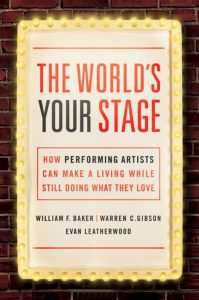 “The fine performing arts have forever existed in a precarious position,” said Leatherwood, a Slifka Fellow at Fordham’s Bernard L. Schwartz Center for Media, Public Policy, and Education. “We’re letting people know that is normal, but we’re arming them with current knowledge.”
“The fine performing arts have forever existed in a precarious position,” said Leatherwood, a Slifka Fellow at Fordham’s Bernard L. Schwartz Center for Media, Public Policy, and Education. “We’re letting people know that is normal, but we’re arming them with current knowledge.”
The book’s section titles suggest that the artist’s history of struggle and triumph is a long one. Sections include “Mozart and the Hustler,” “George Gershwin Catches a Wave,” and “Beverly Sills: Artist, Manager, Mom.”
“Only in the 20th century did people really begin to do this full-time,” said Baker.
But the book doesn’t linger in the past for long. Many contemporary managers who were guest lecturers for the Fordham/Juilliard class made themselves available for interviews—such as Peter Gelb, manager of the Metropolitan Opera. The book documents how Gelb’s embrace of technology has brought the world’s largest nonprofit performing arts institution into the 21st century.
The digital platform that has taken Met performances to millions of new viewers through its Live in HD broadcasts is examined in “The Technology Gamble.” These live broadcasts, which are shown in movie theaters around the world, bring in $17 million annually. Yet, Baker said, the institution’s budget of nearly $325 million often operates at a loss.
Baker said that most of his students, both artists and business majors, don’t realize that 30 percent of an arts institution’s budget comes from philanthropy, not ticket sales—something explained in the chapter “Fundraising.”
“When you are a performer, you don’t go back to your dressing room and relax,” said Baker. “If somebody applauded for you, you go out and find them and become their friend, because you’re going to need their support.”
Others featured in the book are Carnegie Hall Executive and Artistic Director Clive Gillison and the American Ballet Theater’s former CEO Rachel Moore.
]]>
On November 14-16, Fordham Westchester will host the Fordham Forum on Leadership and Growth, a new intensive three-day program for executive decision makers. Westchester’s retreat like campus is expected to foster a think-tank atmosphere for senior executives, managers, and specialists, said Francis Petit, Ed.D., associate dean of executive programs.
The Graduate School of Business Administration (GBA) sponsored event will feature an all-star lineup, including retired General Peter Pace, the former chair of the Joint Chiefs of Staff. Bill Baker, Ph.D., Fordham’s Claudio Acquaviva S.J. chair and president emeritus of WNET, will discuss his new book written with Michael O’Malley, Every Leader is an Artist (McGraw-Hill, 2012). And John Tognino, PCS ’75, chairman & CEO of Pepper Financial Group, will discuss ethics on Wall Street.
“Every top rank business school has an active executive education program and this will act as our flagship,” said Petit. “This program is positioned to present diverse ideologies, so that participants can take away at least one or two new ideas from each session.”
Participants will also be taking away armfuls of books, including Noble Enterprise: the Common Sense Guide to Uplifting People and Profits (Cosimo, 2008). The book by Darwin Gillett uses the turnaround of ailing ATT Canada as case study. Bill Catucci, the company’s former CEO responsible for the rescue, will be at the forum to give his own firsthand account.
Fordham Distinguished Visiting Scholar Dominique Moïsi will bring a geopolitical perspective to the program with his book The Geopolitics of Emotion: How Cultures of Fear, Humiliation, and Hope are Reshaping the World (First Anchor Books, 2010). Jonathan Story, Emeritus Professor of International Political Economy at INSEAD, will analyze the business climate in China through his book China Uncovered: What you need to know to do business in China (Financial Times Series, 2010).
With the worlds of geopolitics converging with the worlds of broadcast, Wall Street, and the military, the diversity and scale promises to bring the participants up close with a variety of successful leaders.
“The overall concept of the program is that no matter what the economic condition, leaders have the chance to grow,” said Petit.
To apply to the conference click here. For more information contact Dean Francis Petit at (914) 367-3271 or [email protected].
It was a night to honor stars and to bless Fordham’s lucky stars, as the University celebrated its ninth annual Founder’s Award Dinner on March 22 at New York City’s Waldorf Astoria.
The annual fundraising event, which benefits the Fordham Founder’s Presidential Scholarship Fund, raised $2 million, recognized the University’s 12 presidential scholars and honored three accomplished alumni. The 2010 Founder’s Award recipients were Maurice J. “Mo” Cunniffe, FCRH ’54; Mario J. Gabelli, CBA ’65; and Regina M. Pitaro, FCRH ’76.
“We are living through a particularly graced moment in Fordham’s grace-filled history,” said Joseph M. McShane, S.J., president of Fordham.
The president thanked Fordham’s supporters who, despite the economic downturn, have contributed more than $300 million toward Excelsior | Ever Upward | The Campaign For Fordham.
“With your continued affection and with your prayers, Fordham will remain what it always is—a place of perpetual springtime, a place where hope is born, talent is nurtured and the world is transformed one heart, one soul, one student at a time to the greater glory of God.”
The evening got off to a stellar launch with a video welcome from Academy Award-winner Denzel Washington, FCLC ’77, who is opening on Broadway next month in August Wilson’s Fences.
“The entire evening is a celebration of Fordham University and its most cherished traditions as an institution dedicated to wisdom and learning in the service of others,” Washington said. “It is also a celebration of Fordham students, particularly those students who have benefited from your generosity.”
Father McShane joined Fordham Board of Trustees Chairman John Tognino, FCLS ’75, to present the awards. Bronx native Cunniffe, a Fordham trustee emeritus and current chairman and CEO of Vista Capital, LLC, said he and fellow awardee Gabelli were products of Fordham’s commitment to the American Dream.
“Fordham has had a tradition of educating immigrants, and Mario and I are central to that,” said Cunniffe. “We both had mothers who knew we had to be educated, so we wound up with the Jesuits for eight years.”
Cunniffe recently donated a gift toward a redesigned student center, to be named in honor of his late wife, Jane.
The son of Italian immigrants and the chairman and CEO of GAMCO Investors, Gabelli was a summa cum laude CBA graduate and a founding member of Fordham’s President’s Council.
“It is no more than 50 or 60 years ago that my folks were working in this hotel, so it’s wonderful to be here,” he said.
Gabelli said that, as children of immigrants, he, his wife, Pitaro, and long-term friend Cunniffe were all “very comfortable” accepting recognition from the Jesuit institution.
“What makes America great is education,” said Gabelli, who, like Cunniffe, grew up in the Bronx, attended Fordham Prep and Fordham and started his own business, “and the greatest educators [have been]the Jesuits—for 500 years.”
Gabelli also stressed the importance of faculty in his own education and in building a viable university.
 |
| Joseph M. McShane, S.J., president of Fordham, thanks guests for their support of the University. Photo by Jon Roemer |
“One thing about faculty, you never know where your influence ends,” he said. “I had several professors at Fordham who were very fundamental in my career.”
Queens native Pitaro earned her undergraduate degree in anthropology and worked as an archeologist before earning an MBA at Columbia University. She is managing director for GAMCO Asset Management and serves on Fordham’s Board of Trustees.
Attendees in gowns and tuxedos watched from behind elegant floral displays, as Founder’s Presidential Scholar Nikeva Stapleton, a senior in the Ailey/Fordham dance program at Fordham College at Lincoln Center, performed a solo piece, Calling.
“There is so much talent in this room,” said master of ceremonies Bill Baker, Ph.D., Fordham’s Claudio Aquaviva, S.J. Chair and Journalist in Residence in the Graduate School of Education. Baker introduced the remaining 11 Presidential Scholars to loud applause.
Rose Hill senior Habiba Jannat, a native of Bangladesh, said the scholarship “paved the way” for her to attend her first-choice school and to realize her aspiration to be a doctor. “It contributed so much,” said the commuter student. “It enabled me to concentrate on grades instead of on how to pay tuition.”
In the spirit of interreligious dialogue, the evening’s invocation was given by His Eminence Archbishop Demetrios, Primate of the Greek Orthodox Church in America. Archbishop Demetrios gave blessings to the audience and blessed the evening’s honorees as those who “walk the noble path of God-illumined philanthropy.”
The Founders Award was established in 2002 to recognize individuals whose lives reflect the University’s defining traditions, as an institution dedicated to wisdom and learning in the service of others. Previous awardees include Avery Cardinal Dulles, S.J., Fordham’s first Laurence J. McGinley Professor of Religion and Society; former New York Giants owner Wellington T. Mara, FCRH ’37, and bestselling author Mary Higgins Clark, FCLC ’79.
]]> Barack Obama’s confidence and cool-headedness are partly why he was elected president of the United States. But if that confidence curdles into arrogance, it will be his downfall.
Barack Obama’s confidence and cool-headedness are partly why he was elected president of the United States. But if that confidence curdles into arrogance, it will be his downfall.
That was one of the messages delivered by an all-star panel of print and broadcast journalists at “The Changing of the Guard in Washington: What to Expect,” held on Jan. 15 at Fordham’s Lincoln Center campus.
Judy Woodruff, senior correspondent for The News Hour with Jim Lehrer, headlined the evening with a lecture on domestic and international issues facing Obama. She then joined the panel discussion hosted by Bill Baker, Ph.D., Claudio Acquaviva S.J. Chair and Journalist in Residence at Fordham.
The panel featured Neil Shapiro, former president of NBC News and current president of Thirteen/WNET; Jodi Kantor, Washington correspondent for The New York Times; and Caren Bohan, political correspondent for Reuters’ Washington bureau.
In her opening remarks, Woodruff noted that it was customary for journalists to be jaded about politicians who talk about change, but that there is a tangible feeling of excitement in the nation’s capitol. That is fortunate, she added, because the United States has not faced such an array of grave challenges in 75 years.
“Even the smartest experts worry about the fragility of our financial institutions,” she said. “Who would have thought that under a Republican administration and a Republican central banker, that the federal government would be bailing out Wall Street?”
Obama’s supremely self-assured nature was the subject of much discussion. Woodruff said that confidence will serve him well when working with his cabinet of political and intellectual heavyweights.
“To be sure, there’s a danger of hubris, or too much self-confidence,” she added. “As David Halberstam so greatly chronicled years ago, [it is]the arrogance of the best and the brightest. But the antidote to that is not the worst and the dumbest.”
 |
| from l to r: Jodi Kantor, Caren Bohan, Neil Shapiro and Judy Woodruff Photo By Michael Dames |
Kantor, who has covered Obama since early 2007, talked about how she was assigned to poke holes in his official biography.
Even when he was a student at Harvard Law in the early 1990s, fellow students produced a parody of him talking about his background—proof that he has long been using his life story to connect with people politically. He also has an almost relentless appetite to win over people who don’t share his views, she said.
“If Obama has a flaw, and this is something that’s tripped him up a couple of times in life, he really thinks he can win everybody over,” she said. “He has a lot of confidence that he can meet somebody from a totally different culture, who he agrees on nothing about, and still form a connection to that person.”
Shapiro, who helped launch the nightly international newscast Worldfocus, said he was struck by how pragmatic Obama is. As a presidential candidate, his initial support for public financing vanished when he realized he had a 7-1 advantage over John McCain.
This might be helpful when trying to predict how he will deal with challenges abroad, which have become tightly entwined with economic and domestic policy. In addition to China, Shapiro predicted that Japan will play a huge part in the United States’ fortunes.
“Japan is the world’s second-largest economy, and where, for a time, we’ve basically ignored our issues about Japan. Now I think they’re going to be a huge force. Are they helping us and buying our debt, or not?” Shapiro said.
“As the world gets smaller—both in terms of communication and in the terms of economics—domestic politics, economic politics and international politics converge,” he said. “That will put even more pressure on the president.”
The panel was the inaugural event in the Phi Beta Kappa Lecture Series and was sponsored by the Graduate School of Education at Fordham. At the conclusion, both Baker and Woodruff were made honorary members of Phi Beta Kappa. They were honored for their dedication to furthering intellectual discourse in the public sphere.
]]>
